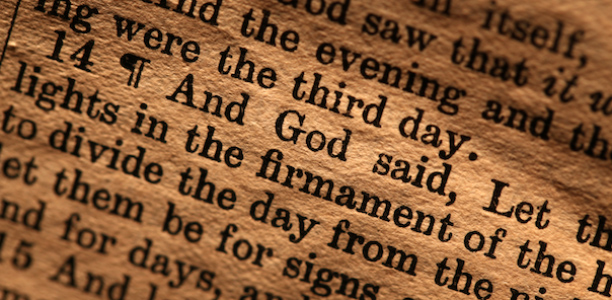By David Faust
 At the dinner table it’s rude if you don’t pass the food. At church another kind of plate passes your way. How do you feel when the offering plate moves down your row?
At the dinner table it’s rude if you don’t pass the food. At church another kind of plate passes your way. How do you feel when the offering plate moves down your row?
It’s tempting to view the offering with indifference (“I gave at the office”), skepticism (“I don’t trust the budget process around here”), or even animosity (“All the church cares about is money”). But if we decide to view biblical stewardship in a positive light, the offering can help us discover why Paul said, “God loves a cheerful giver” (2 Corinthians 9:7) and Jesus said, “It is more blessed to give than to receive” (Acts 20:35).
An example of cheerful giving appears in 1 Chronicles 29, which describes how King David and his team of leaders “gave willingly . . . toward the work on the temple of God” (vv. 6, 7). Altogether they gave so much gold, silver, bronze, iron, wood, and precious stones that their offerings were measured in tons. As a result, “The people rejoiced at the willing response of their leaders, for they had given freely and wholeheartedly to the Lord. David the king also rejoiced greatly” (v. 9).
David and his leadership team illustrate three positive lessons about the offering:
The offering puts God in first place.
David prayed, “Yours, Lord, is the greatness and the power and the glory and the majesty and the splendor, for everything in heaven and earth is yours. Yours, Lord, is the kingdom; you are exalted as head over all. . . . Now, our God, we give you thanks, and praise your glorious name” (vv. 11-13).
A reader of The Lookout wrote and told me about a time years ago when her church couldn’t pay its bills, so the leaders laid the bills on a front pew and asked members of the congregation if they would pick one up and pay it. She remembers, “Ours was $38.00, which at that time was a lot of money to us.” Why was she willing to make such a sacrifice? Because her ultimate goal wasn’t just to pay the church’s bills but to praise God. The offering isn’t the least spiritual part of the church service—it’s an act of worship that tangibly expresses our love for the Lord.
The offering puts us in our place.
David continued in prayer, “But who am I, and who are my people, that we should be able to give as generously as this? Everything comes from you, and we have given you only what comes from your hand” (v. 14). Giving humbles us. It reminds us that we are God-made, not self-made. We give because God first gave to us.
The offering puts our priorities in place.
David’s prayer went on: “Lord our God, all this abundance that we have provided for building you a temple for your Holy Name comes from your hand, and all of it belongs to you. I know, my God, that you test the heart and are pleased with integrity. All these things I have given willingly and with honest intent” (vv. 16, 17).
God doesn’t twist arms, but he does stir hearts. When we view giving as an act of worship, it becomes a joy. Victor Hugo wrote, “As the purse is emptied, the heart is filled.” If we let him, God will fill our hearts every time the plate is passed.
1. What is your attitude about the church’s offering?
2. What steps are you taking to “excel in this grace of giving” (2 Corinthians 8:7)?
David Faust serves as the Associate Minister at East 91st Street Christian Church in Indianapolis, Indiana.
The Lookout’s Bible Reading Plan for July 12, 2015
Use this guide to read through the Bible in 12 months. Follow David Faust’s comments on the highlighted text in every issue of The Lookout.
Luke 8:40-56
Colossians 3:15-25
Psalms 130, 131
1 Chronicles 15, 16
Luke 9:1-17
Colossians 4:1-9
Psalm 132
1 Chronicles 17–19
Luke 9:18-27
Colossians 4:10-18
Psalms 133, 134
1 Chronicles 20–22
Luke 9:28-36
1 Thessalonians 1
Psalm 135
1 Chronicles 23–25
Luke 9:37-50
1 Thessalonians 2:1-9
Psalm 136
1 Chronicles 26–28
Luke 9:51-62
1 Thessalonians 2:10-20
Psalm 137
1 Chronicles 29



Comments: no replies